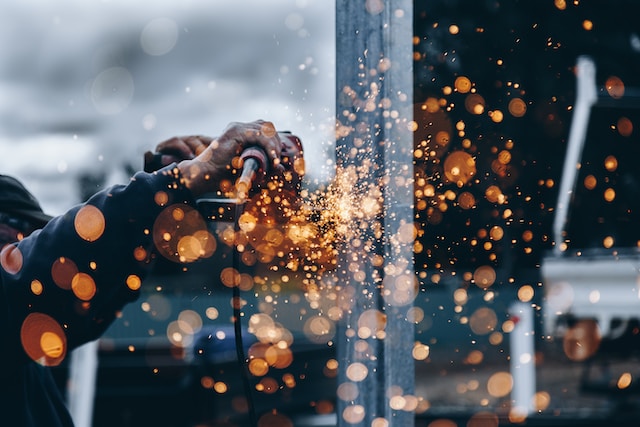
Business Digitization

Industrial Automation

Data Services

Product Design


Industrial automation refers to the use of various control systems, machinery, and technologies to automate and optimize industrial processes, manufacturing, and production tasks. The primary goal of industrial automation is to improve efficiency, increase productivity, enhance product quality, and reduce human intervention in repetitive or hazardous tasks.
Get In TouchIndustrial automation relies on control systems that can manage and regulate various aspects of a manufacturing or industrial process. These control systems can be hardware-based (such as programmable logic controllers or PLCs) or software-based (such as distributed control systems or DCS).
Sensors are used to collect data from the environment or the machinery, while actuators are responsible for carrying out specific actions based on the control system's commands. For example, temperature sensors can monitor the temperature of a furnace, and actuators can adjust the furnace's heating elements accordingly.
PLCs are specialized computers used to control industrial processes and machinery. They are programmable and can execute specific tasks or operations automatically.
HMIs are graphical interfaces that allow human operators to monitor and control industrial processes. They provide real-time data visualization and often feature touchscreens for interaction.
SCADA systems are used for remote monitoring and control of industrial processes. They collect data from sensors and present it to human operators in a visual format, enabling operators to make informed decisions and control processes remotely.
Industrial robots are used for tasks such as welding, painting, assembly, and material handling. These robots are programmed to perform specific actions precisely and repetitively, improving efficiency and consistency.
Machine vision systems use cameras and image processing software to inspect and analyze products for defects or quality control. They can identify defects in real-time and trigger corrective actions.
Industrial automation is widely used in process industries like chemical manufacturing and oil refining to control variables such as temperature, pressure, flow rate, and chemical composition to ensure product quality and safety.
MES software bridges the gap between the enterprise-level systems (like Enterprise Resource Planning or ERP) and the shop floor, helping coordinate and optimize production processes.
The integration of the Internet of Things (IoT) and Industry 4.0 concepts into industrial automation involves connecting machines, sensors, and devices to the internet to collect and exchange data in real-time. This enables predictive maintenance, remote monitoring, and data-driven decision-making.
With increased connectivity and digitalization, industrial automation systems are vulnerable to cybersecurity threats. Robust cybersecurity measures are crucial to protect critical infrastructure and data.
Industrial automation can also lead to energy savings by optimizing processes and machinery for reduced energy consumption.